Chronic Obstructive Pulmonary Disease, commonly referred to as COPD, is a chronic inflammatory lung disease that is characterized by limitation of exhaled airflow. Emphysema and chronic bronchitis are two of the most frequent forms of COPD. The destruction of tiny air sacs leading to holes in the lungs and change of lung elasticity is known as emphysema. Chronic bronchitis is associated with bronchial airway narrowing due to scarring, inflammation and mucus production. It is most commonly caused by smoking cigarettes or other tobacco products, or by long-term exposure to lung irritants such as air pollution, chemicals, or dust.
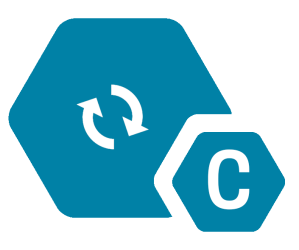
Suggests something that is persistent or recurring. Many patients with COPD may not develop symptoms for years since the onset of disease process
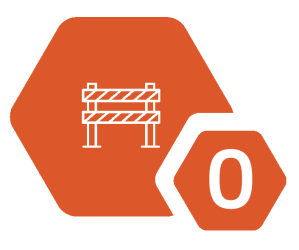
Is the hallmark of this disease process where there is limitation or obstruction of airflow during exhalation. This is due to bronchial airway narrowing because of scarring, inflammation and mucus production.
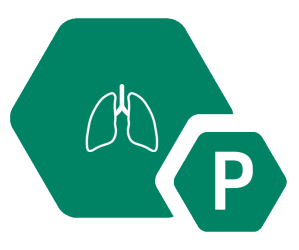
Is a term used to describe issues related to the lungs

Suggests that there has been damage done to the lungs.
COPD is diagnosed through lung function testing called spirometry. Spirometry is a simple test that is helpful in both diagnosing COPD and determining its severity. It involves blowing into a device called a spirometer, which measures the amount of air you can forcefully exhale and how quickly you can do it. This helps determine if there is airflow obstruction, which is the hallmark of diagnosis of COPD. In some patients, further testing like more detailed lung function tests, chest CT scans, oxygen evaluation tests, blood work etc might be obtained.
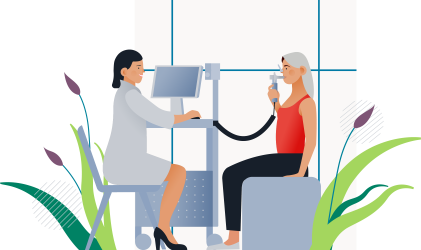
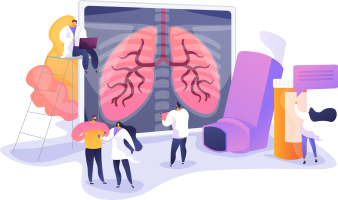
While COPD is not reversible, the following interventions can improve symptoms, prevent disease progression, and reduce flare-ups.
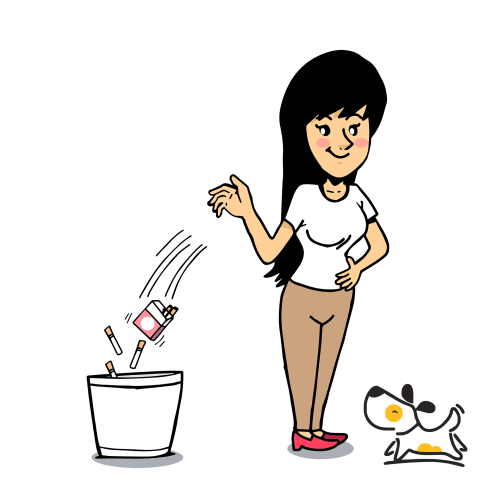
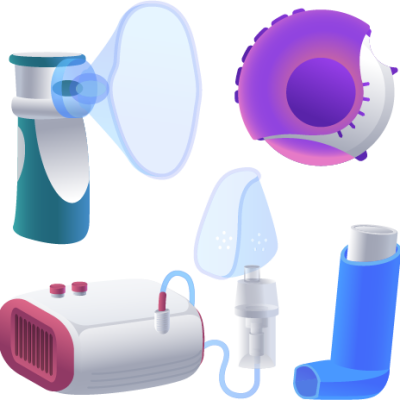
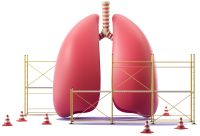
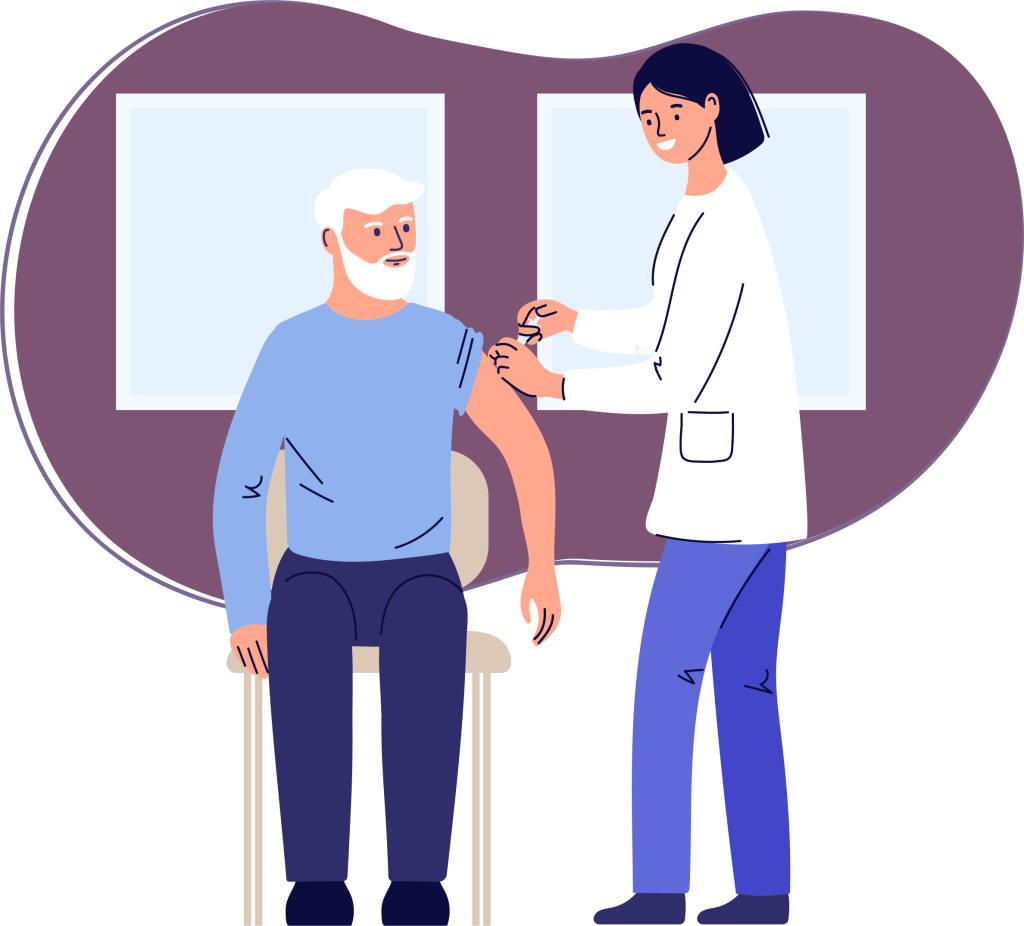
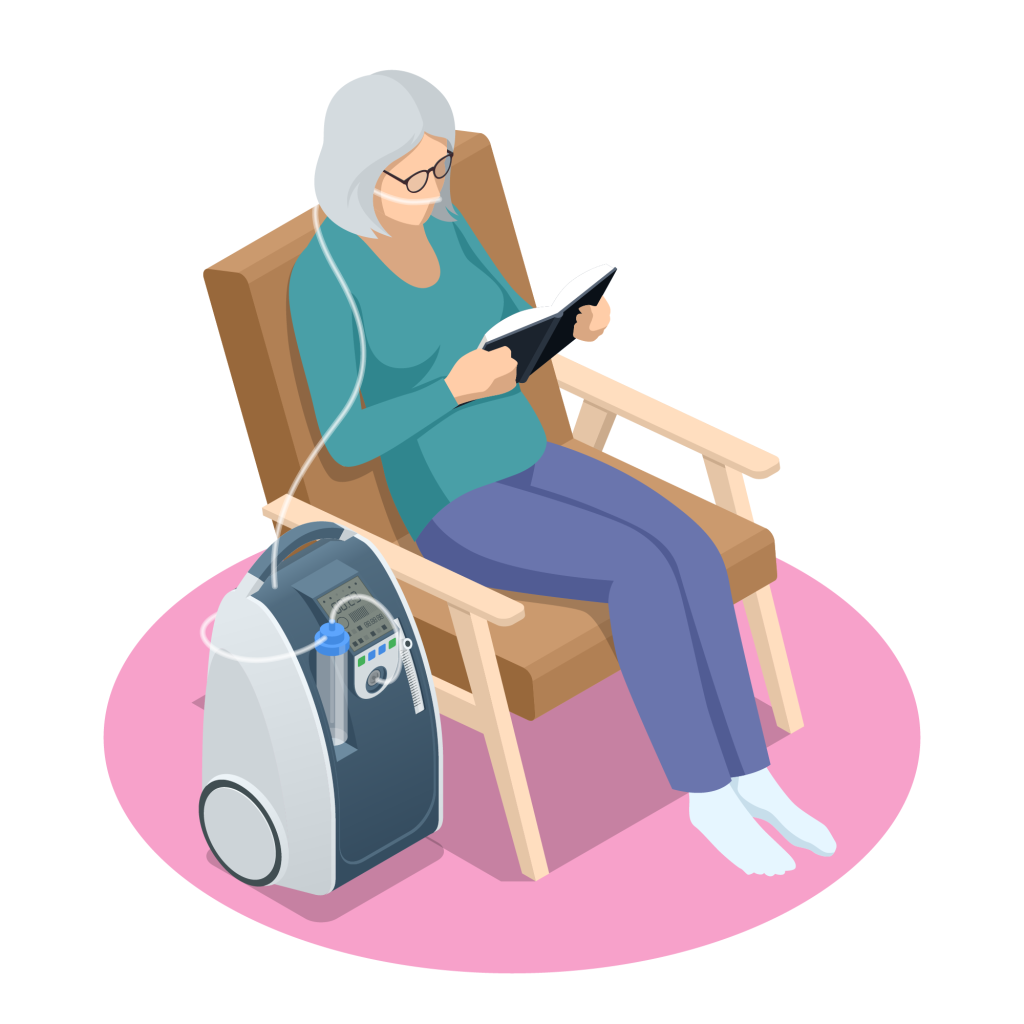

For select people whose symptoms do not improve with the above treatment and/or have disease progression, there are other options available.